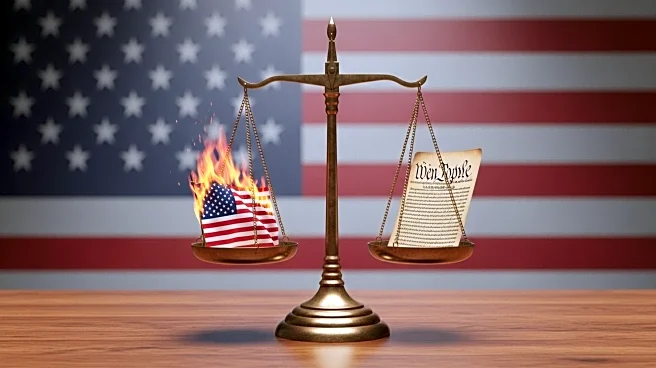What's Happening?
On August 25, President Trump announced an executive order titled 'Prosecuting Burning of the American Flag.' The order directs the attorney general to prosecute individuals who incite violence or violate laws while desecrating the flag. Although the order does not make flag burning illegal, it suggests that flag desecration could be prosecuted under existing state or local laws, such as those against open burning or disorderly conduct. The order also implies that flag burning could be linked to incitement of violence, a notion that has raised concerns about its constitutionality. The Supreme Court has previously ruled that flag burning is a form of protected speech under the First Amendment.
Why It's Important?
The executive order has significant implications for constitutional law and civil liberties. It challenges the precedent set by the Supreme Court regarding flag burning as protected speech. Critics argue that the order could undermine First Amendment rights by criminalizing symbolic speech. The move has also sparked debate within the Republican Party, with some members concerned about the potential erosion of constitutional values. The order reflects broader tensions in U.S. politics, where executive actions are increasingly scrutinized for their adherence to constitutional principles.
What's Next?
The executive order is likely to face legal challenges, as opponents may argue that it violates constitutional protections of free speech. The administration may seek to enforce the order through existing laws, but this could lead to further judicial scrutiny. Political reactions are expected, with civil rights groups and legal experts potentially mobilizing against the order. The Republican Party may face internal debates over the implications of supporting or opposing the order, impacting its stance on constitutional governance.
Beyond the Headlines
The executive order highlights ongoing debates about the balance between national symbols and individual rights. It raises ethical questions about the use of executive power to influence cultural and political norms. The order may contribute to long-term shifts in how symbolic speech is perceived and regulated in the U.S., potentially affecting future legislative and judicial approaches to free speech issues.









